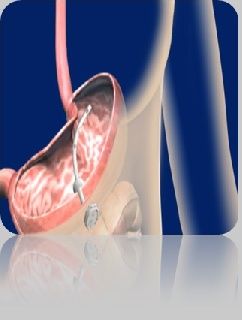AspireAssist is a new approach to weight loss that involves the use of a small device that is surgically implanted into the stomach. The device allows individuals to drain a portion of their stomach contents into a toilet after a meal, reducing the number of calories that are absorbed by the body. While AspireAssist has been approved by the US Food and Drug Administration (FDA) and has been shown to be effective in clinical trials, the question remains: will people accept this new approach to weight loss?
There are several factors that may influence whether or not people will accept AspireAssist as a viable option for weight loss. These factors include the perceived effectiveness and safety of the device, the cost and accessibility of the procedure, and the societal stigma associated with weight loss and obesity.
Effectiveness and Safety
One of the most important factors that will influence whether or not people will accept AspireAssist as a viable option for weight loss is the perceived effectiveness and safety of the device. While clinical trials have shown that AspireAssist can help individuals lose weight and improve their health, there may be concerns about the long-term safety and efficacy of the device. Additionally, there may be concerns about the potential side effects of the procedure, such as infection, bleeding, and perforation of the stomach or intestines.
To address these concerns, it will be important for medical professionals to educate potential patients about the risks and benefits of AspireAssist, as well as the potential side effects and complications associated with the procedure. It will also be important for medical professionals to closely monitor patients who have undergone the procedure to ensure that they are not experiencing any adverse effects.
Cost and Accessibility
Another factor that may influence whether or not people will accept AspireAssist as a viable option for weight loss is the cost and accessibility of the procedure. While AspireAssist has been approved by the FDA, it is currently not covered by most insurance plans, and the cost of the procedure can be significant. This may make the procedure inaccessible to individuals who cannot afford it, or who do not have access to healthcare facilities that offer the procedure.
To address these concerns, it will be important for healthcare providers to work with insurance companies to ensure that AspireAssist is covered by insurance plans, and to work to reduce the cost of the procedure. Additionally, it may be necessary to increase the accessibility of the procedure by making it available at more healthcare facilities, including clinics and hospitals in rural and underserved areas.
Societal Stigma
Finally, the societal stigma associated with weight loss and obesity may be a significant barrier to the acceptance of AspireAssist as a viable option for weight loss. There is often a cultural belief that individuals who are overweight or obese are lazy or lack self-control, and this can lead to feelings of shame and guilt. This may make it difficult for individuals to seek help for their weight loss goals, or to accept medical interventions such as AspireAssist.
To address this stigma, it will be important for healthcare providers to approach weight loss and obesity with a compassionate and non-judgmental attitude. Providers can help to reduce the stigma associated with weight loss by focusing on the health benefits of weight loss, rather than on appearance or societal norms. Additionally, it may be necessary to increase public education and awareness about the causes and consequences of obesity, and to promote acceptance and understanding of individuals who are struggling with their weight.
Additionally, it will be important to address the societal stigma associated with weight loss and obesity, which can be a significant barrier to the acceptance of AspireAssist. By promoting acceptance and understanding of individuals who are struggling with their weight, healthcare providers can help to reduce the stigma associated with weight loss and promote the use of AspireAssist as a viable option for weight loss.
It is also important to note that AspireAssist should not be seen as a replacement for healthy lifestyle habits, such as a balanced diet and regular exercise. Rather, it should be used as a tool to supplement these habits and help individuals who are struggling with their weight to achieve their goals.
In conclusion, the acceptance of AspireAssist as a viable option for weight loss will depend on a variety of factors, including the perceived effectiveness and safety of the device, the cost and accessibility of the procedure, and the societal stigma associated with weight loss and obesity. While there may be challenges associated with the adoption of this new approach to weight loss, the potential benefits are significant, and with education, awareness, and understanding, AspireAssist has the potential to help individuals achieve their weight loss goals and improve their overall health and well-being.
